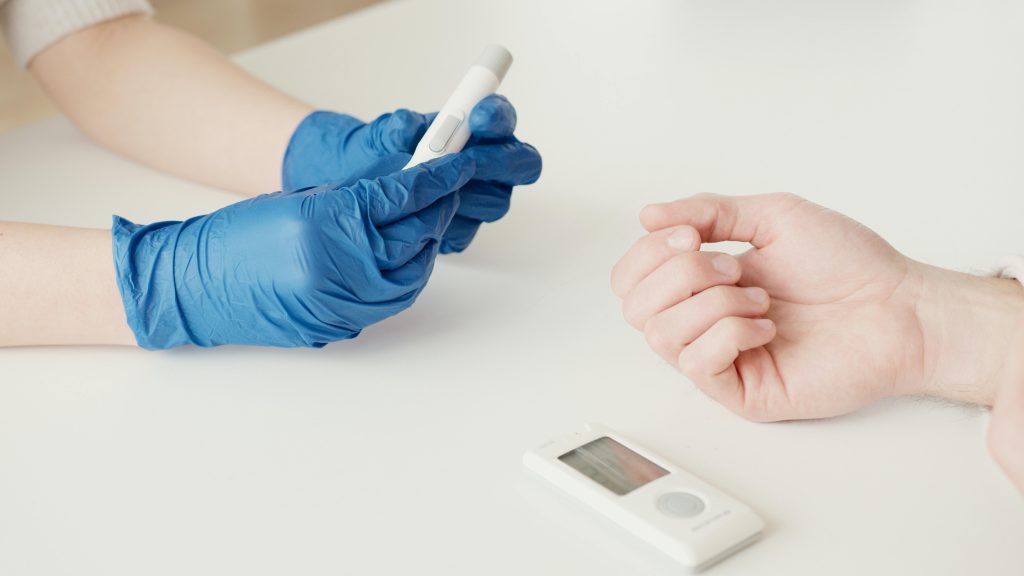Preventing diabetes isn’t about completely cutting out sugar or obsessively counting calories—it’s about understanding how your everyday habits affect blood sugar over time. Glucose regulation is influenced by multiple factors: what you eat, how much you move, how well you sleep, your stress levels, and even the speed at which you eat your meals. These small, repeated lifestyle choices can either help your body process glucose efficiently or contribute to insulin resistance, a key risk factor for type 2 diabetes. Research shows that modest, intentional adjustments can have a measurable impact on blood sugar, energy, and overall metabolic health.
In this article, we’ll break down five lifestyle habits that play a significant role in blood sugar management. We’ll explain why they matter and provide practical steps you can take to make improvements gradually, without feeling overwhelmed. By consistently adopting small, manageable changes, you can create lasting habits that reduce diabetes risk and support long-term well-being.

1. Sitting Too Much: The Silent Blood Sugar Saboteur
Many of us spend hours each day sitting—at desks, in meetings, commuting, or lounging at home. Even with a healthy diet, prolonged sitting can lower insulin sensitivity, making it harder for glucose to move from the bloodstream into cells efficiently. Over time, this subtle stress can increase the risk of insulin resistance and type 2 diabetes.
The solution doesn’t require intense workouts or a gym membership. Incorporating micro-movements throughout the day can make a meaningful difference. Stand up at least once an hour, take a short walk, stretch, or do light bodyweight exercises during breaks. Even a few minutes of walking after meals helps your body process glucose more effectively. Over time, these consistent, small movements can significantly improve metabolic health and reduce blood sugar spikes.
Practical Tips to Stay Active at Work:
- Use a standing desk or an exercise ball for part of the day.
- Schedule walking meetings or phone calls.
- Set reminders to move every hour.
- Take short morning and evening walks as a routine.
2. Eating Too Fast: How Rushing Meals Can Spike Blood Sugar
Eating too quickly doesn’t give your body enough time to regulate glucose properly. Food enters your stomach rapidly, causing blood sugar to rise sharply and forcing the pancreas to release more insulin than necessary. Repeated spikes over time can contribute to insulin resistance.
Slowing down and eating mindfully can make a big difference. Chew each bite thoroughly, pause between bites, and focus on the taste, texture, and aroma of your food. Mindful eating supports digestion, helps regulate blood sugar levels, and promotes better satiety, which can reduce overeating.
How to Practice Mindful Eating:
- Set aside dedicated meal times without distractions like phones or TV.
- Put utensils down between bites.
- Take small sips of water to pace yourself.
- Pay attention to fullness and stop eating when satisfied, not stuffed.
3. Poor Sleep or Staying Up Late: An Underrated Risk Factor
Sleep is often overlooked in blood sugar management. Irregular or insufficient sleep disrupts hormones such as cortisol and insulin, which can elevate fasting glucose levels. Even a few nights of poor sleep can reduce the body’s efficiency in processing glucose.
Prioritizing consistent, restorative sleep supports metabolism, regulates appetite hormones, and boosts energy throughout the day.
Tips for Better Sleep:
- Aim for 7–9 hours of sleep per night.
- Keep a consistent bedtime and wake-up schedule.
- Limit screens at least an hour before bed.
- Create a dark, quiet, cool sleeping environment.
- Avoid caffeine or heavy meals close to bedtime.
4. Stress and Anxiety: The Hidden Blood Sugar Connection
Chronic stress triggers cortisol release, which elevates blood sugar to prepare your body for “fight or flight.” Occasional stress is normal, but prolonged exposure reduces insulin sensitivity and increases diabetes risk. Small, consistent practices can make a significant difference in managing stress and supporting glucose control.
Simple Stress Management Techniques:
- Take 5–10 minutes daily for deep breathing or meditation.
- Schedule short walks outdoors.
- Keep a gratitude journal to shift focus away from stressors.
- Engage in relaxing hobbies like music, art, or reading.
5. High-Fat, High-Carb Diets: Beyond Just Sugar
Sugar often gets the blame for blood sugar spikes, but high-fat, high-carbohydrate meals can have an equally strong effect. Greasy takeout, white bread, pasta, and processed snacks slow digestion while increasing insulin demand, putting long-term stress on the body.
Making simple dietary adjustments can help. Choose whole grains instead of refined carbs, pair carbs with protein or fiber, and moderate fried or fatty foods. Even small changes, like swapping white rice for brown rice or adding extra vegetables to your meals, support insulin function and more stable glucose levels.
Tips for Healthier Meals:
- Cook simple home-cooked meals using whole ingredients.
- Balance plates with lean protein, fiber-rich vegetables, and whole grains.
- Limit processed and fried foods to occasional treats.
- Track meals for a week to spot patterns that affect blood sugar.
Taking Action: Small Changes, Big Results
Preventing diabetes doesn’t require a total lifestyle overhaul. Simple, intentional habits often have the most profound impact. Walking at least 6,000 steps a day, prioritizing sleep, chewing food slowly, avoiding rushed meals, and practicing daily stress management can collectively stabilize blood sugar.
The key is consistency. Start with one habit, track your progress, and gradually layer on additional practices. Over time, these small, deliberate actions compound, helping maintain steady blood sugar, increase energy, and improve overall health. By focusing on sustainable, incremental changes, you empower yourself to manage glucose effectively and reduce your risk of type 2 diabetes over the long term.
